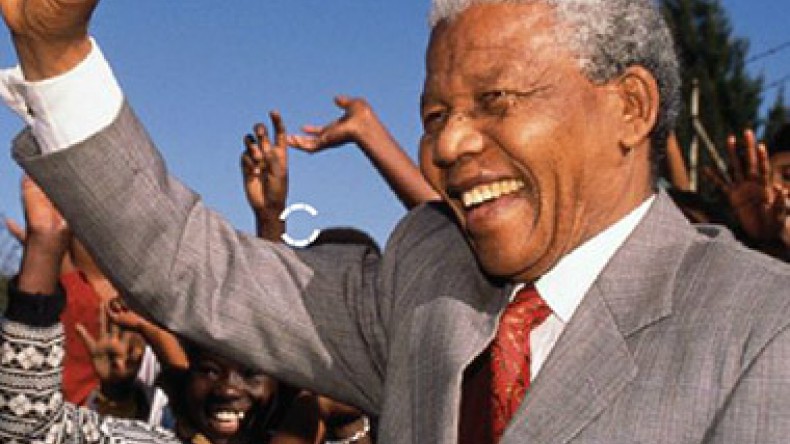
‘West hostile to African independence’
Press TV has conducted an interview with Abayomi Azikiwe, Editor of Pan African News Wire, Detroit about South African economic apartheid that still exists today despite great effort by the late Mandela and others
- Tell us first of all the main legend... the main message that if Mandela could have left behind and he would want to have left behind what would it be?
- The necessity of protracted struggle; the necessity of organization and mass mobilization; the perseverance of hope.
Mandela spent some twenty seven and a half years in prison and even prior to that he was persecuted heavily by the racist apartheid system.
He remained committed to his goals, he was able to build mass support for the African National Congress (ANC) and its allies during the course of his imprisonment and I think these are the ideals that he has instilled in all struggling and oppressed people not only in South Africa but throughout the world.
- We are hearing rave reviews throughout the world for Mr. Mandela after he died. But we know that to the United States and many Western governments like the UK and others; he was considered a terrorist, until recently they were supporters of the racist apartheid regime.
What does this say exactly? Have they all done an about face on their perspective or is this all just for show?
- They want to maintain their economic and political influence inside South Africa. South Africa is a very wealthy country in terms of mineral resources. It is strategically important in regards to its status on the African continent. It has the most industrialized advance economies on the African continent.
So, that is the reason why they had to shift their posturing.
The former apartheid regime was already on the decline by the late 1980s due to the mass struggles and the armed struggle of the ANC and its allies inside the country as well as the international movement that rose up during the 1980s and early 1990s calling for the total abolition of apartheid.
That is the only reason why they shifted their position, but even today they maintain a posture that is largely hostile toward the aspirations of the peoples of the African continent
And I’m very sure the ANC is very much cognizant of this as well as the other leading forces on the African continent.
- We look at Mandela’s dream and his goals. Let’s look at the changes or the lack thereof that has taken place inside of South Africa. Yes there has been an end to the apartheid system; yes there are more blacks in positions of power.
But there are many that would say that actually the financial power center is still in the hands of the minority white; that the blacks are the ones that actually are still struggling and still suffering the most.
Tell me, as far as Mandela’s vision and the reality of what we’re seeing on the ground in South Africa, how close are they?
- Well, the apartheid system was essentially an economic mechanism for the extraction of mineral resources and the super exploitation of African labor. That system is not going to be changed over a period of even two decades because it was in the making for over 300 years.
So therefore it’s going to take time to transform the system. We cannot look at South Africa outside the overall world capitalist system – South Africa is still very integrated into the world capitalist system.
And all nations that have had revolutions over the last generation or two generations still have to deal with the dominance of the United States and the other Western imperialist countries. That is an ongoing struggle.
Until there are fundamental political and economic transformations in the Western industrialized states including the United States it’s going to be very difficult for all revolutionary movements around the world to gain genuine freedom and genuine unity and sovereignty.
- What will it take for the South Africans to actually achieve that true revolution that I’m sure is the goal of the majority?
- They’re going to have to take control of the national economy of the country in terms of the mines, the factories and the arable land within the country.
That process is being heavily debated right now inside South Africa and the debate will continue and the political struggle inside South Africa will continue as well.
A luta continua as they say in Southern Africa and that is going to be the legacy of Nelson Mandela as well as the other martyrs who have laid down their lives for the liberation of South Africa.
Newsfeed
Videos






























